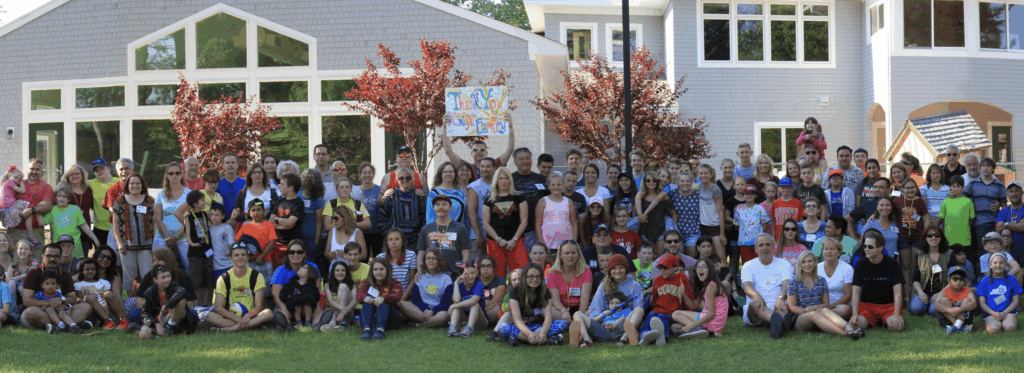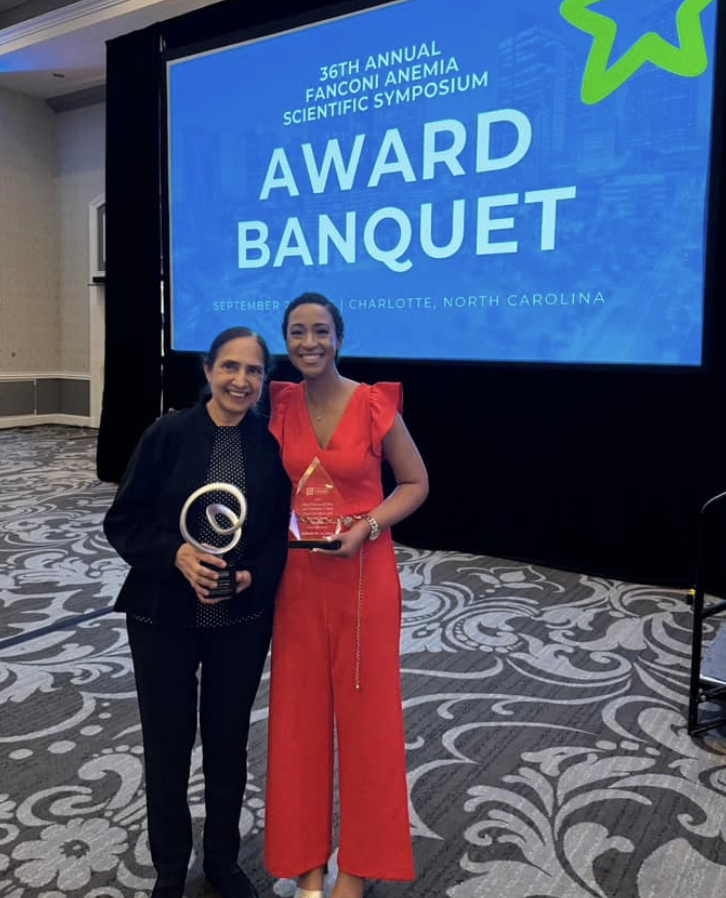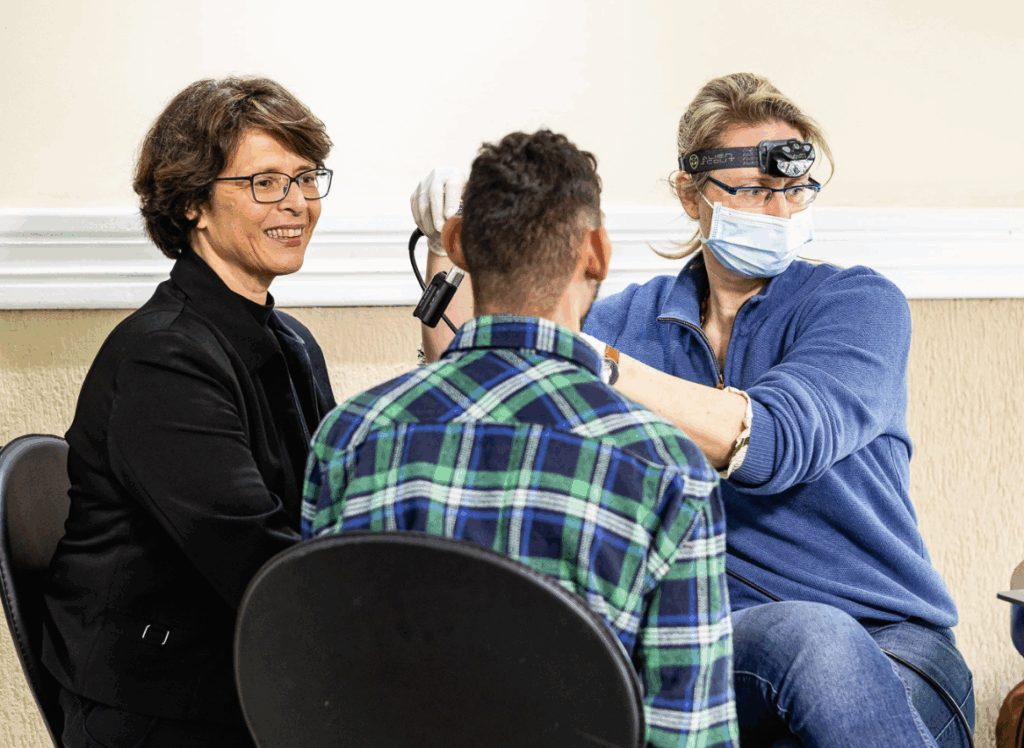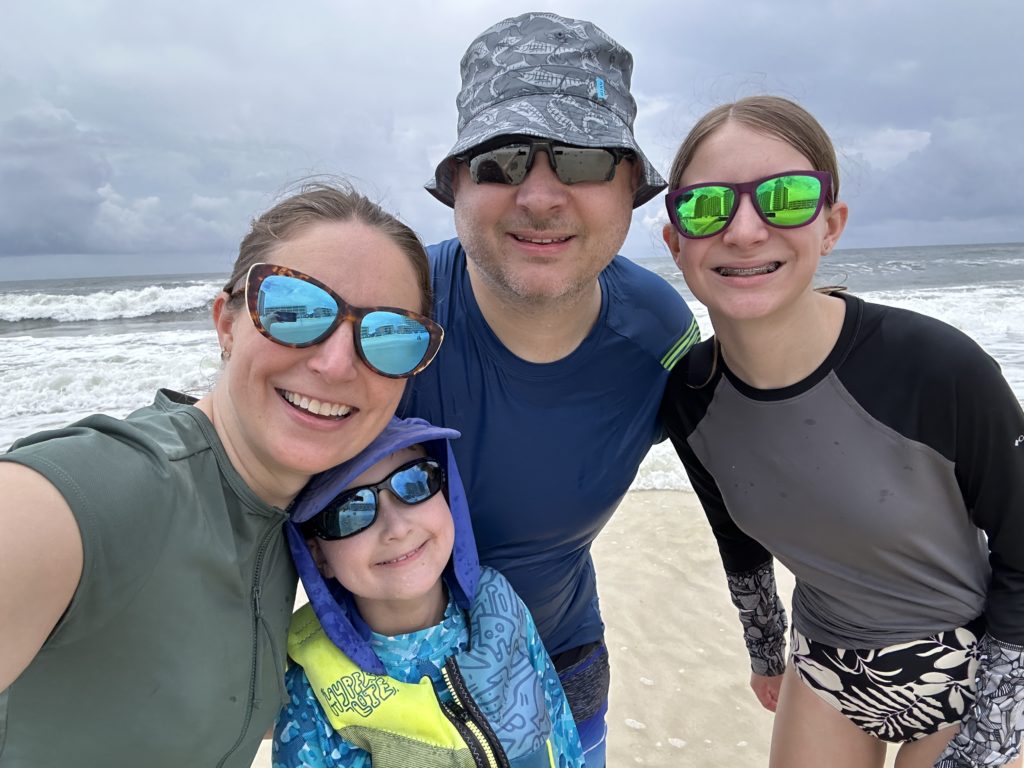Ten-year gift fuels breakthroughs in early cancer detection, prevention and treatment

EUGENE, OREGON – In 2015, Phil and Penny Knight made a bold ten-year pledge of $10 million to the Fanconi Cancer Foundation (FCF) to address the extraordinarily high risk of life-threatening cancer in people with Fanconi anemia (FA), a rare genetic disorder that often leads to highly aggressive malignancies at a young age. Their investment in research focused on FA cancer has provided new knowledge on understanding of DNA-repair biology and its effects on cancer. Research supported by the Knights has shaped best practices in prevention, early-detection, and treatment strategies for cancer, benefiting people with FA and providing far-reaching benefits for the broader population.
Katherine De Los Santos’ lived experience shows the impact Phil and Penny Knight have made. A few years ago, persistent chest pain led her to enroll in the FCF-funded cancer screening trial at the National Institutes of Health, supported by the Knights’ gift. Her esophageal cancer was found early, allowing for swift treatment and recovery. Today, Katherine is cancer-free, continuing her studies toward her dream of becoming a pediatric hematologist-oncologist, and is living proof that early detection saves lives.
“If not for this research,” Katherine shares, “not only would I not be here today, but I wouldn’t have a second chance to pursue my dreams and enjoy the small pleasures of life. Since being in remission this year, I have graduated Mercer University with my master’s degree and gotten engaged to the love of my life thanks to this research!”


A Decade of Breakthroughs
Over the last ten years, the Knights’ support has enabled research that would never have happened without private philanthropy. Their gift has been instrumental in:
- Advancing early cancer detection: Funding worldwide efforts focused on using brush biopsies, a noninvasive screening tool now showing promise for cancer detection in the broader population.
- Driving innovation in cancer prevention trials: Laying the groundwork for therapies that can prevent cancer, leading to an upcoming clinical trial.
- Pursuing targeted cancer treatments: Supporting the first head and neck cancer clinical trial for advanced oral cancer in FA, aiming for more effective and less toxic treatment options.
- Advancing gene editing approaches: Supporting research into innovative techniques like base and prime editing to fix the mutations in DNA that cause FA. By correcting these mutations in FA cells, scientists are developing a precise, less risky alternative to bone marrow transplantation and cancer therapy. The ultimate cure for FA will entail gene therapy, which has the potential to fix the underlying genetic cause of this disease.
- Expanding understanding of the BRCA (breast cancer)–DNA repair pathway: Illuminating mechanisms that cause tumor formation and informing new strategies to prevent and treat cancers affected by faulty DNA repair in all people.
Inspired by Friendship and Shared Vision

The Knights have been loyal supporters of the Fanconi Cancer Foundation for decades. In 2015 they became champions for the FA community with their commitment of a $10 million pledge focused on addressing the urgent cancer risk in FA. By then, two of Lynn and David Frohnmayer’s three daughters had passed away from complications of the disease, and David himself died in 2015 from cancer. Their third daughter, Amy, died of leukemia the following year.
“The deep sadness of losing three remarkable daughters to FA and the loss of my terrific husband to cancer is with me daily,” shares Lynn Frohnmayer, FCF Co-Founder. “It is mitigated only by the knowledge and belief that the generosity of others, and most especially the transformative gifts of the Knights, is preventing early deaths, greatly extending life expectancy, and has given hope to FA families around the world. Words cannot express the enormity of my gratitude.”
Impact Beyond FA
Although FA is a rare disease, the genes involved are part of a critical DNA repair pathway present in everyone, meaning the Knights’ investment in FA research has had a truly global impact. Our understanding of FA and FA cancer is advancing the broader field of cancer biology, influencing studies on breast, ovarian, and head and neck cancers, and informing prevention strategies that could help countless people.

“When our organization was founded in 1989, physicians considered this a pediatric disease, killing almost every patient in the first or second decade of life, writes Fanconi Cancer Foundation CEO Isis Sroka, PhD. “Today, most patients live into their late 20s, 30s 40s and even later. The game-changing gifts from the Knights are largely responsible for this remarkable expansion in life expectancy. Knowledge about the causes, prevention and non-toxic treatment of cancer developed because of their generosity has applicability for the population in general.”
John E. Wagner, MD, professor of pediatrics and co-leader of the Transplant and Cellular Therapy Program at the Masonic Cancer Center, University of Minnesota, underscores the impact of this research on patients: “Thanks to sustained FA research, survival after blood and marrow transplant now exceeds 90 percent, gene therapy is restoring marrow function in children, and earlier detection and new immunotherapies are changing what’s possible for people with FA. The Knights’ support helped turn discoveries in DNA repair and stem cell biology into today’s life-saving care.”
The Power of Philanthropy in Scientific Research
In today’s climate, with national research budgets under pressure, private donors like Phil and Penny Knight are vital. Their decade-long commitment is transformational, bringing hope to families and changing the trajectory of cancer research.
The discoveries made possible by the Knights’ gift will continue to shape the future of FA and cancer research for years to come. Their legacy shows how vision and generosity can spark remarkable progress, and reminds us that transformative change often starts with a single bold act.
Learn more: The FA and Cancer Story
###
About Fanconi Cancer Foundation
The Fanconi Cancer Foundation (FCF) is the leading organization worldwide dedicated to advancing research, advocacy, and support for people affected by Fanconi anemia (FA) and associated cancers. FA is a rare inherited disease characterized by bone marrow failure, leukemia, and a very high risk of cancer. FA stems from mutations in one of 23 genes, including notable breast cancer susceptibility genes BRCA1 and BRCA2.
Founded in 1989 by parents Lynn and David Frohnmayer, FCF’s contributions have been instrumental in improving treatments such as hematopoietic cell transplant, significantly enhancing success rates and improving patient outcomes and life expectancy. Studying FA and its connection to cancer not only provides crucial insights into the disease itself but also contributes to a deeper understanding of the complex interplay between DNA repair mechanisms and cancer development. This research has the potential to inform the development of novel diagnostics, preventive strategies, and therapies for various types of cancer. By fostering collaboration and innovation, FCF continues to lead the charge toward effective treatments and ultimately a cure for Fanconi anemia and associated cancers.




